The last couple of weeks have exploded with news –legislation, scrutiny, and government departmental jiggling continues. Several research reports of note have been published alongside a deluge of updates on key research topics. The OfS continues to be examined by the Lords, the Budget was announced, there’s been excitement over apprenticeships and T level changes. It’s all too much for one update so we’re spreading content across the next few issues based on themes. Pass the reading glasses!
We start with a good look at the Lifelong Loan Entitlement which has been heralded as major change for the HE sector. We’ll leave you to decide how much change it really means (some sections of the university administration will feel the future changes more keenly than others).
Lifelong Loan Entitlement
We’ve talked about the Lifelong Loan Entitlement (LLE) at length in our previous policy updates, you may recall there was a consultation on the entitlement some time ago. This is the government’s flagship HE policy that is intended to refocus the sector on delivering courses that add value to the economy and, (as it says on the tin), lifelong learning, away from what some papers like to call “mickey mouse degrees” for 18 year olds that do not lead to strong employment outcomes for those 18 year olds. It’s a huge change, potentially, but will it work?
The Government has now published their response to the consultation and they set out the ‘design’ of the new entitlement which we can expect from 2025. The press release excitedly claims: Student finance to be radically transformed from 2025. HE and Skills Minister, Robert Halfon, published a written ministerial statement on the LLE. And there is an impact assessment and an equality analysis.,
The LLE (HE fee limit) Bill is about to enter Committee Stage in the House of Commons. This is when the real scrutiny and in depth line by line look at the detail takes place. The membership of the Public Bill Committee who will examine the Bill have been announced. It includes local Poole MP Sir Robert Syms, Minister for HE Robert Halfon, Robbie Moore (the PPS to DfE Ministers, Toby Perkins (Shadow Minister for FE and Skills), Matt Western (Shadow Minister for HE). We can expect more news on this next week because the Committee is scheduled to examine the Bill on Tuesday (21st) and Thursday (23rd). Although the primary legislation (the Bill) is still passing through the Houses and not yet an Act the Government already indicated in their response to the consultation outcomes that any future legislative changes necessary to operationalise the LLE will be incorporated through secondary legislation.
So onto the main news…we’ve read the (very lengthy) reports in detail and below we summarise the main points. In places we’ve included quotes to illustrate the Government’s intention. It’s all very simple – until you try to think through the move from the current student finance and admissions systems to the new LLE system. In short, we have questions!
- The current student loan system will be replaced with the LLE for academic year 2025/26. Students will have a personal account and access to detail such as the value of their credit remaining: “This will be available online, and operate much like a bank account.”
- The LLE offers the equivalent of four years of post-18 education (currently £37,000 in today’s fees) for individuals to use over their working lives, with additional entitlement for priority subjects and longer courses (such as medicine, and perhaps teaching). “We plan to outline the courses eligible for additional entitlement for autumn 2023.”
- Age limit: Individuals aged over 60 will not be able to access the LLE/student funding. This is in direct contradiction to the consultation responses received; however, the Government has always been clear that student funding is provided for employability. Of course, it also doesn’t make fiscal sense for the Government to provide public purse loans for individuals who will not repay a significant enough sum within the remainder of their working lives. It’s not an unexpected decision. The Financial Timeshas coverage of the age limit.
- Fundamental to the Government’s introduction of the LLE is a modular system so students can engage and disengage as suits their personal and professional interests. Full and part time study will be funded. Modules will be based on minimum credit levels (more on this below).
- When the LLE initially launches new modular funding will only be applied to Higher Technical Qualifications and some other courses currently funded through Advanced Learner Loans. LLE funding will be extended to level 6 technical qualifications from 2027. Most current HE provision will also be incorporated in 2027. The modularisation of some HE courses (when it happens) is not expected to be quite such a change as a credit system is already in place. Minister Halfon has said he expects the initial take up for the LLE would be “a few thousand [people]”.
- Module fundamentals: Modules (or grouped bundles of modules) will be a minimum of 30 credits, at the same level as where they appear within a full course. Modules must be part of a ‘parent course’ so they build up into a full qualification. Each module will be assessed and come with a standard transcript upon completion – this will help with transfer and the build-up of standalone units into a bigger picture. During the consultation period the sector called for adaptation where courses cannot be delivered through a modular approach (i.e. those courses which are centred on currency and consolidation of knowledge such as medicine) to continue to provide yearly funding would be the most appropriate funding route. We assume this will go ahead alongside the different funding arrangements for training for medicine, architecture, and so on.
- Autonomy: HE providers will continue to have full autonomy over whether or not to modularise any given course or whether to make it credit bearing…and not all modules of courses should attract funding… In cases where there are courses that are not currently structured around credit bearing modules, but that have high learner and employer demand for modular funding, the provider or awarding body is free to consider restructuring the course into credit bearing modules. For non-credit bearing courses the Government will determine a default number of credits.
- Quality will be assessed through outcomes metrics which build upon the existing course metrics and outcomes data available where possible. The OfS has previously announced that it will begin engaging with the sector in summer 2023 on developing student outcome measures for modular provision, including considering how to measure completion, employment outcomes and progression to further study. In the Government’s synopsis of the responses they received to the consultation the sector opinion felt that the LLE should make use of existing regulatory and quality infrastructure … Processes used to ensure quality for modular courses should be proportionate and consistent… And …Many respondents noted that the current approach for measuring continuation and progression is not compatible with shorter or modular courses. For example, under the LLE, a learner may not complete a whole course, but stop once the learning objectives they require have been covered or take many years to gain the required number of credits for a degree. It was suggested that learner outcomes could be measured through the use of longitudinal measures of course effectiveness, or greater use of student survey data on graduate outcomes. How will the data be managed to provide a valid comparison between module graduate outcomes when so much of an individual’s income projection will be reliant on what came before in their employment history?
- Credit transfer: the jury is out (and undecided). The consultation responses from the sector indicated strong support for agreed mechanisms to facilitate credit transfer. e. an agreed system and process for the sector to follow consistently. The Government state: The government will not impose credit transfer arrangements, but instead seek to facilitate credit transfer through other methods including through introducing the requirement for providers to provide a standardised transcript on completion of modules, and through information, advice and guidance and Personal Account functionalities where possible… The government will continue to consider the mechanisms necessary to further facilitate and stimulate credit transfer, informed by responses to this consultation and continuous stakeholder engagement…[the Government] recognises that having clear credit transfer methods in place could be a positive contributor to delivering the beneficial flexibility that the LLE seeks to achieve. We will continue to work closely with the Devolved Administrations to seek to achieve this flexibility, deliver LLE and maintain a coherent student funding policy across the UK. So no one is sure quite how to roll it out nationally…yet. It seems likely that consistent guidelines around credit transfer will be lobbied for by the HE sector. It’s all a bit woolly at the moment which opens the system to game playing and may not be in the student’s best interest.
- Student movement: Conspicuous by its absence is mention of how all this mobility will work in practice, aside from the credit transfer question. What does this mean for individuals wishing to switch between low and high tariff providers because one has a world-leading expert delivering their desired module. (And what would that mean for grade inflation/moderation?) What does it mean for student support, induction and student belonging if students become more mobile? What about students who wish to study some elements overseas? Student movement did feature briefly in the sector’s commentary on the consultation.
- The LLE will fund various courses from traditional degrees to Higher Technical Qualifications – so a broader range of courses and choices than are currently funded. In future, if the course is not on the LLE students won’t be able to access funding for the fees or maintenance. The Government will control what is on the LLE. However, it’s not as drastic as this might sound. Currently the Government already agree what constitutes a fundable degree course. And, for now, the Government have committed to continue funding all the HE student financed courses that are currently supported (see Annex C for reassurance on specific course types). However, this might provide a non-legislative route to defund courses that the Government consider do not contribute enough to the country’s economic needs – which is how things went in the Australian model. Putting this aside bringing the funding for academic and technical education through one system may also help achieve the elusive parity of esteem for employers and society the Government has been seeking to eradicate favour for the academic over the technical route?
- Applications (UCAS): There will be a single application point for all student finance (levels 4-6). This seems a genuinely empowering aspect of the new system. In theory it is easier and it will allow students to consider wider choices and perhaps investigate the benefits of both technical and academic (and likely hybrid) routes at application stage. In recent years surveys of potential students have seen growth in those declaring they’d seriously consider an apprenticeship route. Bringing the two together through one system will allow direct comparisons. However, how much will decisions on routes all come down to the big question of cost? The Government intend for UCAS to fulfil this role. Speaking at an Education Select Committee hearing this week Minister Halfon stated his hope that “one day UCAS will be called the University Colleges and Apprenticeships Service”.
- Repayments: LLE repayments will be made under Plan 5 terms and conditions. In fact, all new courses started from August 2023 (pre LLE) will be issued on Plan 5 T&Cs. The repayment threshold will be £25,000 for Plan 5 loans in 2026-27. As is current practice graduates earning under the repayment threshold will not make repayments. It will be a 40 year loan term (and all outstanding debt written off at that point). Presumably pension income (after the state pension age) will not count for repayment, however, this level of detail hasn’t been broached yet. And in a finance system where a 40-year loan may be taken out at age 50 to retrain this is an important question to resolve.
- ELQ restrictions will be removed (i.e. students who have studied previously can pick up courses at an equivalent or lower level than their previous qualifications). Of course, this removal of ELQ restrictions is essential for a government that wishes to facilitate retraining to fit national skills gaps.
- It’s not just fees – maintenance loans are part of the LLE system too. This includes extending maintenance loans to categories that previously couldn’t access maintenance support, such as some technical and part time/modular courses – announcements for this expected at the next Spending Review. Some qualifying conditions and thresholds for intensity and duration of study will apply for maintenance funding. The Government say: This will set the [technical] system on a par with traditional full-time study and open up new study and training opportunities for people from all backgrounds. [Loans and targeted grants] will also be available for learners with child and adult dependants and for learners with disabilities… loans and grants should continue to be available to support access and participation in learning leading to positive outcomes. Distance learning courses will not receive maintenance loans. Overall the maintenance calculation will be similar to now: the maintenance calculation will continue to take account of weeks of study, course credit value, household income and location of study.
Interesting is: The government is clear that maintenance support should be reflective of time in study, representing a contribution towards living costs where learners’ ability to earn is reduced and there are greater costs as a result of study, as well as taking into account personal circumstances that impact their needs. Does this mean that courses with substantial placements (such as nursing) which prevent the student from engaging in other work will receive a more generous maintenance loan?
- The LLE will specify a fee limit (this legislation is currently passing through Parliament as we mentioned earlier). The fee limit will be based on either the credit level of the module or the yearly maximum cost. The Government states: ‘the LLE will enable meaningful fee limits to be set on periods of study shorter than a year. What this means in practice is that modules and short courses, as well as traditional degree courses, will be priced consistently according to the amount of learning they contain. This will create a fair, more flexible system…’ Again this isn’t dissimilar to now – the Government already specify the maximum fee limit. However, during the 2017 negotiations for the Higher Education and Research Act the Government had to limit its ambition. For example, the Lords would not sign off on quality (TEF) related differential fee levels – and the Government’s rhetoric on high quality courses hasn’t eased to date. It’s a possible mechanism to prioritise fee levels according to subject – for example, boosting engineering fees and reducing those of English literature. Although how likely this is will pan out according to the politics of the next few years (and the general election outcome). We also need to keep an eye out for how the fee limits will be applied to international students.
- There will be some flexibility for special circumstances – but we don’t know what. The consultation response says this: The LLE will also include a mechanism, akin to the existing Compelling Personal Reasons (CPR) mechanism in HESF, designed to help ensure that learners affected by circumstances beyond their control can complete their studies. We will be providing further information and guidance on this before launch in AY25/26.
- There will be a third OfS registration category for providers not currently on the register but which currently offer Advanced Learning Loan provision. The OfS will consult on this.
- The LLE will not be Shariah compliant at launch. The government remains committed to delivering an Alternative Student Finance (ASF) product. However, this will not be delivered at LLE launch in AY25/26… The Government is procuring advice from experts in Islamic finance and will be working with the Student Loans Company (SLC) to better understand timescales for delivery of an ASF product under the LLE. Our aim is that students will be able to access ASF as part of the LLE as soon as possible after 2025. An update on ASF will be provided by late 2023. The Government will further continue to undertake significant engagement ahead of implementation of the LLE to ensure that solutions are evidence-based and directly address the barriers faced by a diverse cohort of students. As part of the ASF delivery project, we will undertake a Shariah certification process in line with Islamic finance industry norms.
- Out of cash: Related to the ELQ element is what happens when the individual account runs dry. For example, the individual that achieves their three-year degree that later in life wishes to upskill in an alternative advanced area. They would have one year’s worth of credit left but would this be enough? They would need to self-fund any remaining costs above that year. And where does this leave students on sandwich degrees? Sandwich placements fit well with the Government’s agenda for graduates to be work ready and help students develop those essential workplace skills and experiences to attract the highly skilled jobs and the boost to their graduate outcome. However, a sandwich course may become a disincentive as it leaves these individuals with only a part year worth of credit for later in life. Not ideal. Will sandwich years be included in the financial flexibility the Government may offer in certain circumstances?
- Choice? Similar to above is the question of whether employers can compel an individual to use their LLE entitlement to study a qualification to upskill within their role – is an individual free to refuse and if so should the employer fund the suggested module? Can an individual be disadvantaged for promotion if they refuse to use their LLE?
- One size doesn’t fit all. Integrated masters (IM) create a headache for the LLE. Here is the simplified nub of the debate from the sector consultation responses: The responses for incorporating IMs into the LLE were mostly positive, suggesting this would create a simple process that could be easily accessed. Respondents also reported that some level 6 modules can be counted towards a level 7 qualification, therefore, not including level 7 modules in the LLE could be confusing for providers. On the other hand, it was felt that if the LLE was to include IMs it could be perceived as unfair for those who have not chosen the IM route. A further downside of having IMs in the LLE was felt to be that learners would not be able to do a placement year or repeat a year, even if they have compelling personal reasons, as they will have used their full entitlement on the IM. PGCEs were another headache. Again the Government do not specifically comment but they may decide to fund this priority area within the additional funding entitlements (similar to the anticipated extra funding for medicine). Access courses are not expected to be funded under the LLE as they are considered to be at level 3 standard.
- The LLE tops out at level 6: So standalone Masters and postgraduate funding is out of scope.
- Institutional bursaries: One of the consultation questions asked if the future LLE system should include a facility for provider-based bursaries that are directly allocated to students. The majority of responses agreed bursaries should exist to:
- Support and encourage learners who have financial barriers.
- Encourage study in areas where there are identified skill gaps.
Financial parity in bursaries to prevent differentiated bursary offer between institutions was mentioned by a small number of respondents.
- Also within the consultation synopsis: It was also noted that new courses would be required which would provide an opportunity to review how competencies are assessed. It was felt that the range of assessment methods of the current apprenticeship scheme could be learnt from, and that technology and automation could be used to support assessments in both vocational and academic subjects, removing the reliance on end of year exams.
The elephant in the LLE room is careers guidance. The Government has been tackling this wicked problem for years and Minister Halfon brings a refreshed focus to addressing quality careers guidance. In the Ministerial foreword to the LLE it states: The current student finance system needs to better serve those who need it most. If students are poorly advised at 18, and end up using their single serving of student finance on the wrong course, the result is people hemmed-in by choices made at a young age, struggling to improve their employability at a time when businesses are crying-out for skilled candidates. However, will one extra year (or part year) of funding make all the difference to the economy when graduates wish to substantially retrain? It’s hard to imagine it will be enough to retrain or cross sectors at a highly skilled level.
Employers may also expect employees to meet their own course or retraining costs for specific modules, rather than the company having to fork out to support training. Who is winning with this new system? Does it make the burden on the public purse fairer? Probably, because later life re-trainers who didn’t do advanced courses at a younger age (but whose tax did contribute to funding others) will then get their bite of the cherry. Will it solve the country’s skills gaps? Probably not. Will careers advice be integral to making good decisions? Undoubtedly. Will universal, high-quality and personalised careers advice be available to all in an accessible, impartial and timely manner? Unlikely. What is likely is that the same challenges will remain and this will limit the effectiveness of the Government’s LLE dream in the long term.
We leave you with the Government’s upbeat aspirations for LLE: …our intention [is] to deliver a radical shift in the tertiary education system. We will remove the artificial division between funding for Higher and Further education, by unifying these student finance systems across levels 4, 5 and 6. All higher education courses, whether academic or technical, will be funded in the same way.
Wonkhe say: It’s the biggest shake-up in post-compulsory education since 2012, and one with clear repercussions for the higher education sector in England. The idea that at least some of the dominant demand for traditional honours degrees will be replaced by shorter, stackable provision has implications for course design, quality assurance, and student services. One big gap will be around the lifelong advice and support needed in planning a route through a complex offer towards qualifications and career growth.
Blogs:
The Budget
This week saw the annual excitement/dread of the annual Budget.
Parliament has published a series of their impartial accessible briefings relating to the Budget:
The Chancellor announced that the UK is no longer expected to enter a technical recession, and that the country was on track to meet the PM’s targets to halve inflation, grow the economy, and reduce debt.
Our summary below will focus on the aspects of the budget of most relevance to HE and research. You can read the full Budget detail here and for a more in-depth look at some of the budget themes there are a series of documents here.
The Budget was themed around the four ‘E’s’ of:
- Employment: boosting labour supply, including by encouraging the inactive into work
- Education: providing everyone with the skills and support they need
- Enterprise: providing the right conditions for businesses to succeed
- Everywhere: ensuring the benefits of economic growth are felt across the UK.
Employment
- New disability benefit strategy and voluntary employment scheme for disabled people to help them into work.
- Support for children in care to help more care leavers into employment.
- £3m expansion of Supported Internship pilot programme for young people with SEN.
- Enhancements to the DWP’s mid-life MOT programme – ensuring the over-50s get career advice. And a new ‘returnerships’ apprenticeship for the over-50s.
Specifically, on migration:
- The government will ensure that the UK labour market has access to skills and talent from abroad where needed, to help businesses tackle immediate labour shortages and ease business visits to the UK.
- To help ease immediate labour supply pressures, the government has accepted the Migration Advisory Committee’s (MAC) rapid Shortage Occupation List (SOL) assessment for the construction and hospitality sectors and will add five construction occupations to the SOL. More regular reviews of the SOL will take place too so that the legal migration system is quicker and more responsive to the needs of businesses and the economy.
- The government will simplify business visitor rules. In addition, the government will consider further enhanced provisions linked to negotiations with trade partners, including a wider range of activities.
Education
- Nothing specific on HE and not a lot on the school issues you might expect (doesn’t seem to be any new money for schools funding). Childcare for employment productivity was the main focus:
- Incentives for childminders, optional increases to the child : adult childcare ratios, more funding for nurseries, more support for workers on universal credit, wraparound school care supply to increase (from September 2026); 30 hours of free childcare for workers from age 9 months (September 2025).
- Education gives people the knowledge and skills they need to get the jobs they want, helping turn the UK into a high skill, high wage economy. The government has already committed to maths to 18 and is rolling out T Levels, Skills Bootcamps and the Lifelong Loan Entitlement, which will have a transformative impact on post-18 education, giving people the opportunity to study, retrain and upskill throughout their working lives.
- The government believes that people should be able to access the Education and training they need to get the jobs they want. A good education system is the best economic and social policy any country can have, and education should not stop when you start work. UK employers spend just half the European average on vocational training for their employees, and less than 10% of total spend on training goes towards formal high quality training delivered by external institutions. Skills Bootcamps and the Lifelong Loan Entitlement are already in place.
- Long-term investment in human capital is crucial for growth and productivity and for maintaining the UK’s international competitiveness. Investing in education and skills means people can perform more, and more complex, tasks, boosting their chances of success in the labour market. Increasing skills is vital for boosting productivity: changes in labour quality contributed to around 15% of growth in labour productivity between 2001 and 2007 before the Global Financial Crisis, and the majority of labour productivity growth in the years after.
- The UK has risen nearly 10 places in the global school league tables for maths and reading since 2015 alone and has a strong foundation of advanced skills and a number of world-class universities. However, the UK lags behind international comparators on technical and basic adult skills. This is why the government is making numeracy a central objective of our education system, right up to 18, and is continuing to invest in high quality technical education, incentivising businesses and individuals to invest in skills in England by delivering T Levels, approving Higher Technical Qualifications and rolling out Skills Bootcamps.
- The government will introduce the Lifelong Loan Entitlement in England from 2025, which will have a transformative impact on post-18 study, giving people the opportunity to study, retrain and upskill flexibly throughout their working lives. Individuals will be able to access loan funding for full or part-time study, for a variety of courses – from degrees to Higher Technical Qualifications – and including modular study.
- The government will extend the Alternative Provision Specialist Taskforce pilot using funding from the Shared Outcomes Fund. This will continue multiagency support to vulnerable children in alternative provision schools, to improve engagement with education (including attendance, behaviour and wellbeing) and reduce their vulnerability to serious violence.
- As the country adapts to working for longer [age], the government is committing to upskilling and retraining workers of all ages. Returnerships are a new offer targeted at the over 50s, which bring together the government’s existing skills programmes, focusing on flexibility and previous experience to reduce training length. Returnerships will promote accelerated apprenticeships, Sector-Based Work Academy Programme placements and Skills Bootcamps to the over 50s. This will support better access to re-training and allow workers of all ages to engage with the opportunities of a second career.
Enterprise
- Enhanced R&D tax credit, allowing eligible SMEs to claim back £27 for every £100 spent. To help encourage innovation in the economy, Spring Budget announces further support for R&D intensive Small and Medium Sized Enterprises (SMEs), via an enhanced rate of tax relief for loss making companies; and for the UK’s world leading creative industries, through increased audio-visual tax reliefs.
- Spring Budget launches the refocused Investment Zones programme to catalyse 12 growth clusters across the UK – 12 new Investment Zones (8 in England, 4 across Scotland, England and Wales) – where combined authorities will be able to access an £80bn pot of support for the creation of new innovation clusters with local partners, such as universities. This has been widely trailed in the media this week. Wonkhe say: each zone will focus on one area from technology, creative industries, life sciences, advanced manufacturing and the green sector. The Government stopped short of supporting UUK’s pre-Budget calls for a University Enterprise Zone (UEZ) in every university. None of the Investment Zones will be near BU.
- Two trailblazer devolution deals with Greater Manchester and the West Midlands combined authorities. …will give them greater control over local transport, skills, employment, housing, innovation and net zero priorities, as well as single funding settlements at the next Spending Review.
- £40m for FE and HE to extend participation in Northern Ireland.
- The first competition for small modular reactors, as part of launch of new Great British Nuclear.
- A big show of support for Sir Patrick Vallance’s the Pro-innovation Regulation of Technologies Reviews. The Government supported all 9 recommendations and will launch a new AI sandbox, work with IP Office to provide clarity on IP rules, the new Government Chief Scientific Adviser to report before the summer on progress (see next bullet), a Quantum Strategy published the day after the budget (and an accompanying consultation) – more below. And funding support of £900m to implement the review of Compute (see below).
- Based on Sir Patrick’s interim findings on life sciences, the government is providing extra funding for the Medicines and Healthcare products Regulatory Agency (MHRA) to help it maximise use of its Brexit freedoms and accelerate patient access to treatments. The government has now asked Sir Patrick to report on how regulators can better support innovation, and the government’s new Chief Scientific Adviser, Professor Dame Angela McLean, will oversee future reviews into creative industries, advanced manufacturing, and the regulator growth duty.
- In line with two of the key recommendations of the Future of Compute Review, the government will invest, subject to the usual business case processes, in the region of £900 million to build an exascale supercomputer and to establish a new AI Research Resource, with initial investments starting this year. Plus, the government will award a £1 million prize every year for the next 10 years to researchers that drive progress in critical areas of AI.
- The Quantum Strategy sets out a new and ambitious quantum research and innovation programme. The government will invest a total of £2.5 billion over 10 years, focusing on realising 4 goals: ensuring the UK is home to world-leading quantum science and engineering; supporting businesses through innovation funding opportunities and by providing access to world-leading R&D facilities; driving the use of quantum technologies in the UK; and creating a national and international regulatory framework.
- The government has allocated £100 million funding for the Innovation Accelerators programme to 26 transformative R&D projects. This will accelerate the growth of 3 high-potential innovation clusters and support Levelling Up. This includes the Manchester Turing Innovation Hub led by the University of Manchester, 2 quantum projects in Glasgow led by the University of Glasgow and M-Squared Lasers Limited, and a project to accelerate new health and medical technologies led by the University of Birmingham.
Everywhere
- The Investment Zone and Manchester | West Midlands Trailblazers as mentioned above alongside – the government will also negotiate a new wave of devolution deals with areas across England.
- New Levelling Up Partnerships (nearest to BU are Torridge and Torbay) – providing over £400 million of investment in 20 areas across England. The government is also providing additional funding for local projects to encourage growth and support communities, including: over £200 million for 16 high quality regeneration projects, £200 million for local authorities to repair potholes and improve roads, over £100 million of support for local charities and community organisations, and over £60 million for public swimming pool providers to help with immediate cost pressures and make facilities more energy efficient
Specifically on Public Services:
- £100m for local charities and community organisations
- Additional £10m to help voluntary sector work on suicide prevention
- Day-to-day departmental spending will grow 1% per year from 2024-25
We’re awaiting the publication of the long term NHS workforce plan – due “shortly”.
Wonkhe blogs on the Budget:
Research
We will be watching what happens now the Windsor Framework. Has been passed through a successful vote in Parliament This new agreement tackles the sticking points in the Northern Ireland Protocol that the EU previously balked at preventing the UK from moving forward on items such as Horizon association. Now, President of the European Commission, Ursula von der Leyen has stated the EU is ready to begin serious discussion of the UK’s participation in Horizon Europe. Good news for the sector – hopefully!
Meanwhile the alternative funding guarantee train rolls on. UKRI confirmed £883 million worth of funding grants have been allocated (against £1 billion worth of applications).
Recently we also heard that £1.6 billion earmarked for Horizon or the alternative scheme would be returned to the Treasury.
We’ll bring you details of the recent big research reports and latest news on Horizon association across the next two weeks. Meanwhile we have the latest on autocracies and the quick research news.
Quick News
- The DBT (Department for Business and Trade) updated the guidanceon the meaning of research and development (R&D) for tax purposes. This includes treating mathematical advances as science.
- Jisc published Optimising the UK’s university research infrastructure assets.
- ARMA published Complex Collaborations – Efficiency, Equity, Quality And Security In International Research. ARMA found that whilst the majority of research organisations have made progress in responding to the Trusted Research and security agenda, there are unique challenges relating to the complexity and cross-cutting nature of the legislation which make this different to other forms of due diligence. The project also identified a need for immediate action that offers practical solutions to stakeholders at every level, in addition to longer term responses and cultural change. More here.
- The PM appointed Professor Dame Carol Propper and Professor Keith Ridgway to the Council for Science and Technology(CST). The Council advises the Prime Minister on strategic science and technology policy issues that cut across the responsibilities of individual government departments. More info on the appointees and the Council’s current work programme here.
- Wonkhe: Research England has announcedan initial £60m in funding to identify and spread research commercialisation practices – a first round of bidding on specific challenges set by an advisory group will open later this year. The programme builds on the Connecting Capability Fund, for which an interim report has also been published – it finds a “lack of experienced commercialisation support staff” across universities to be an ongoing challenge.
- Wonkhe: The government has announcedits National Quantum Strategy, which will see £2.5bn invested in quantum science and engineering over the ten years from 2024. This includes plans to train over 1,000 PhD students in relevant fields over the coming decade, beginning with an investment of £25 million over the next two years, with a target to more than double the number of centres for doctoral training focused on quantum technology. A “quantum apprenticeships programme” as well as summer schools, research exchanges and industry placements are all committed to.
- UKRI announced 11 programmes for the initial phase of the Government’s new International Science Partnerships Fund (ISPF). These include:
- a Japan-UK research collaboration in neuroscience, neurodegenerative diseases and dementia;
- a clean energy and climate change programme in conjunction with Australia, Canada and the US
- a new partnership with South Korea to help UK businesses develop and grow in areas across digital health, clean energy, advanced manufacturing and materials, future mobility and smart cities
- Wonkhe: The UK Research Integrity Office (UKRIO) releasedan updated version of its procedure for investigating research misconduct, intended to act as a “blueprint” for how investigations are conducted in any organisation involved in research, including universities.
- DSIT and DHSC have appointed Lord O’Shaughnessy to conduct an independent review into the UK’s commercial clinical trials landscape. It’s expected the outcomes will be published in Spring 2023.
- Science asks how many of the UK’s problems can science and technology fix in A science superpower in the wings? A thought provoking and quick read.
- How the Government supports universities to develop local economies and growth areas
- Wonkhe report that Former PM Tony Blair and former Conservative party leader William Hague have joined forces to argue for the vital importance of science, technology, and innovation to reshape the British state. Wonkhe blog: considering the implications for universities.
- Wonkhe also have a blog on ARIA (the Advanced Research and Invention Agency) which considers whether a publicly funded independent research body can ever be that independent, and at what cost.
- Wonkhe: The government should ringfence £170m of the UK Shared Prosperity Fund to provide bridging funds when EU structural funding for regional development runs out at the end of March – so arguesa letter to Chancellor of the Exchequer Jeremy Hunt from all 16 University Alliance universities and over 300 UK SMEs. The withdrawal of EU funds means that innovation infrastructure, expertise and partnerships developed since 2014 “are at imminent risk of disappearing,” the letter warns. Swansea University Vice Chancellor Paul Boyle writes about the letter on the Universities UK blog.
- The UK Committee on Research Integrity (UKCORI) has publishedits 2023-25 strategy and plan of forthcoming activities, including an annual statement on research integrity in the UK and a review of institutions’ research integrity statements.
Parliamentary Questions:
Autocracies
The Foreign Affairs Committee is addressing the international risks inherent in the internationalisation of HE. Primarily through participation in research and engagement with autocracies. Their previous report, A cautious embrace: defending democracy in an age of autocracies, concluded that not enough was being done to protect academic freedom from financial, political and diplomatic pressure. The Committee warned that the battle for university students or trade deals should not outweigh the international standards which have brought freedom and prosperity to the UK and the wider world. The Committee also stated that the Government’s advice to academia on the potential threats from autocracies was ‘non-existent.’ The Committee intends to test if Government guidance to universities is adequate and whether universities are following these guidelines to manage the risks associated with the internationalisation of HE. This includes the potential security risks from joint research projects with organisations based in autocracies such as intellectual property or data theft and espionage. Finally, the potential overdependence on funding from Chinese students is also of concern.
The Committee interviewed UUK Chief Executive Vivienne Stern as part of the inquiry. She stated that the HE sector is getting better at managing risks from international research collaborations with autocratic states – but the legal and regulatory requirements are “byzantine” and institutions are sometimes “overwhelmed” by the duplication and overlap of what is required of them in compliance. Also called for oral evidence was City, University of London President Anthony Finkelstein who stated the Government should provide a clear UK-China policy for universities. You can watch the oral evidence session for more detail.
Wonkhe report that Chair of the Commons Foreign Affairs Committee, Alicia Kearns, spoke out at a Policy Exchange event criticising the UK’s reliance on partnerships with China, saying “it is hard to overstate just how infiltrated we have become”. Alicia was also the architect of the amendment to the HE (Freedom of Speech) Bill which empowers the Government to ban Confucius Institutes over freedom of speech concerns. She stated that the UK must work on technology with “those who share our values” and pointed to Horizon Europe association as the first step in achieving this. Alicia also said the Committee had a “great number of concerns” and that “academia seems to behave as if it is free of geopolitics – it is not.”
Blog: Michael Salmon wonders whether the sector should expect more, or better, regulation.
Submissions from Universities UK and the Russell Group to the have been shared – UUK recommends a simplified legislative and regulatory approach to international collaboration, noting a lack of “any coherent strategy to UK-China relations” from the government. The Russell Group’s submission cautions against duplication of legal reporting requirements, and suggests that the government “consider declassifying and publicising anonymised examples where there is evidence that autocratic states have interfered in UK academia.” Civil liberties group Big Brother Watch has also given evidence, focusing primarily on the use of Chinese CCTV technology on UK campuses. (Wonkhe.)
DfE’s submission has been published – the submission summarises legislative and regulative work done over the past few years in defence and security as they relate to higher education. We learn that the government’s Research Collaboration Advice Team (RCAT) has engaged with 129 research institutions on 350 queries since its launch in March last year, including on “complex issues which have resulted in targeted mitigations of national security concerns.” Research institute RAND Europe’s submission has also been posted. (Wonkhe.)
Integrated Review Refresh 2023: The government has announced plans to launch a “comprehensive review of legislative and other provisions designed to protect our academic sector” on the UK’s defence and security priorities. The Times also reports that the new National Protective Security Authority, launched alongside the review, recommends that universities “question whether it would be ethical” to sign agreements with organisations linked to the military or police of a hostile state. The review positions science and technology as a “priority element” in international partnerships – a forthcoming International Technology Strategy will set out what this means. Sir Patrick Vallance, the Government Chief Scientific Adviser and Co-Chair of CST, said: “Professor Carol Propper and Professor Keith Ridgway both bring extensive expertise to the Council for Science and Technology. Their knowledge of the research and innovation landscape will be invaluable in supporting the Council’s role in providing advice on the government’s high-level priorities for science and technology and exploring the opportunities for achieving national goals through emerging technologies.” (Wonkhe.)
Innovation Insights
DSIT published Insights from the UK-wide survey of the Research and Innovation Workforce 2022. The aim behind the survey was to inform policymakers about the actors in the innovation and R&D workforce covering a broad range of roles from academic researchers, laboratory technicians, software developers, market researcher to CEOs and senior management. Here are the key insights and policy implications that DSIT highlight:
Research, development and innovation policies need to consider the entire research and innovation workforce. Attention should be paid to the entire R&I ecosystem including workers who mainly focus on commercialisation and the wide range of roles that produce innovation outcomes. DSIT say – The occupation level data produced in this survey will be used to tailor policies more precisely.
The R&I workforce is highly educated, skilled and mobile, and there are opportunities to make UK R&I more attractive to work in. R&I workers require a range of soft, technical and specialist skills and the majority hold post-graduate degrees. As their qualifications and skills are highly sought after, they are also highly mobile both in terms of sectoral and geographical (international) movement (Over 52% worked outside the UK in the course of their R&I career). Inward and outward international mobility of talent can be beneficial to the UK. DSIT note that UKRI’s report on Global Talent shows that international mobility can contribute to increased research skills, career progression, quality, and quantity of outputs. Elsewhere in the report we spotted that 57% of respondents to the survey are seriously contemplating working outside the UK within the next five years. So the UK may also have a high level brain drain to tackle. Of those willing to move 49% believed they’d be better paid and 44% because they’d have a better work-life balance. Unsurprisingly family and the UK culture were the key reasons the non-movers were opting to stay in the UK.
There is potential to improve diversity of the R&I workforce to better reflect the UK population not only to improve work culture, but also increase innovation in teams and help the UK to meet business demand for more R&I workers .The R&I workforce is disproportionally male (71%). Female and certain ethnic minority R&I workers are less likely to agree that their workplace supports diversity and inclusion. There is an opportunity to increase innovation by encouraging a more diverse range of people into the innovation workforce.
Other interesting points:
- Commercialisation:Private sector workers were more likely to report that their work fed into:
- intellectual property and licensing (49% of private sector workers compared with 14% in HE);
- prototypes, new products or processes (48% private; 10% HE);
- software and technical products (45% private; 17% HE);
- commercialising research or new technology, without seeking intellectual property (37% private; 10% HE), and
- new business, start-ups and spin-outs (35% private; 8% HE).
- Info sharing: 51% of respondents share their knowledge via education, training or mentoring (75% HE; 73% FE; 33% private).
- Motivation: Respondents chose their R&I career due to their interest in the nature of the work. 73% stated it was crucial to them that the role was interesting and meaningful.
- Longevity: 64% of respondents had worked in R&I for more than 15 years (average career length 22 years). 69% believed they had a positive working environment which supported them to do their best work.
- EDI: Overall, 75% felt their workplace culture supports diversity and inclusion (8% disagreed). However, respondents from Asian and ‘other’ ethnic groups were more likely to disagree with the statement compared to white respondents, and women were twice as likely to disagree as men (13% women; 6% men). Private sector respondents (83%) and those with organisational leadership roles (83%) were more likely to agree with the EDI statement.
- Funding:87% of respondents have applied for UKRI/Research Council or Innovate UK grant funding – 74% were successful.
Quick News
- The Chancellor’s Investment Research Reviewwas announced in December 2022 as part of the Edinburgh Reforms to drive growth and competitiveness in the financial services sector. It’s now been announced that Rachel Kent will chair the review and the terms of reference have been published. The Investment Research Review will examine the link between levels of research and the attractiveness of the UK as a destination for companies to access capital, both in private and public markets. The review will gather information and evaluate options to improve the UK market for investment research and provide recommendations. The review is being conducted independent from Government.
- Also announced are the terms of reference for the independent review of university spin-outs. The independent review will look at the distribution of performance across universities to identify best practice in university spin-outs and licencing deals. Cambridge, Oxford, and Imperial College were the second, third and fourth in the world for number spin-outs deals in between 2013 and 2017. And, overall, there has been a five-fold increase in UK university spin-out investment from £960 million in 2014 to £5 billion in 2021. The review will compare approaches in the UK to those of other world leaders such as the US, and look at how approaches vary across the UK. It will inform policy making to ensure that the UK continues to seed and grow innovative companies of the future and will build on existing evidence from previous studies of UK spin-outs. It will address the tensions academics feel in balancing commercial interest with their academic and research work It is due to report in summer 2023. The Financial Times has coverage of the story.
- The DBT (Department for Business and Trade) updated the guidanceon the meaning of research and development (R&D) for tax purposes. This includes treating mathematical advances as science.
- The Welsh Government has publishedits Innovation Strategy. setting out four missions in education, health and wellbeing, the economy, and climate and nature. The strategy includes a commitment that Welsh ministers will “seek to drive up investment from the UK Government and beyond in Welsh research, development and innovation.” It sets a target of five per cent of Innovate UK’s competitions budget invested in Wales by 2030, with similar goals for other funding sources including other UKRI research councils to be announced “in due course”, along with a more detailed action plan. (Source: Wonkhe)
R&D – public polling
The Campaign for Science and Engineering (CaSE) polled public attitudes to R&D. 52% didn’t know what R&D meant, especially female respondents. Respondents also thought R&D mainly took place in London or the South East. When connecting R&D to their own region they saw the drivers as universities, the NHS and business. 60% of respondents thought R&D wouldn’t benefit people like them with the 35-44 age group particularly disillusioned on this matter. In fact, age had a strong connection with R&D perception with older people being strong supporters of R&D and younger respondents did not value R&D because they believed we’d benefit from the R&D done abroad, that it wouldn’t create jobs in their area or that the UK cannot afford to invest in R&D. I
in general, arguments that linked R&D to a tangible problem – even if this solution is a long way off – help win people over. People are concerned about the cost of living, the sustainability of the NHS and the impacts of climate change. The report states there is huge scope to strengthen this link between R&D and the key issues facing people to make our advocacy more relevant and compelling.
The polling was by far the most interesting policy report issued recently and while you can read it in full here I’d recommend delving directly into the sections that interest you most by clicking on the red text boxes on their website. The polling and report are a rich source of data for colleagues interested in R&D, do delve in there is much more of interest than we have the space to cover in the policy update. Wonkhe also report on the polling.
Freedom of Speech Bill
The House of Commons Library published a briefing summarising the stages and progress of the HE (Freedom of Speech) Bill so far. We’re in ping pong stage and the Government is deciding how many of the Lords amendments and objections they can take down to bring the Bill closer to their desired final form. Earlier in February the Commons considered the 12 amendments to the Bill made by the Lords. Clause 4 of the Bill is most contentious between the two chambers and the Government tabled a motion to disagree with the Lords amendment which had removed clause 4 from the Bill. Clause 4 introduced a new statutory tort to allow individuals to bring legal proceedings if HE providers and students’ union were not complying with their duties under the Bill. The Government carried their motion and the statutory tort is back in the legislation.
The House of Lords considered the Commons amendments on 21st March and sent it back over the net to the Commons with some more amendments proposed by Lord Willetts. Hansard has the record of the fairly short but interesting debate.
Wonkhe have a blog here.
International
International Student Housing: International student housing continues to be of media interest. Wonkhe report:
- The proportion of student houses inhabited by international students has grown from 29 per cent in 2014/15 to almost 40 per cent in 2021/22 – with the bulk of the increase since the introduction of the graduate route. Our own analysis of Higher Education Statistics Agency (HESA) figures on where students are living shows a supply of rental bedspaces failing to keep up with demand – and a record percentage of home domiciled undergraduates living at home, 48 per cent up from 41 per cent in 2014/15.
- The figures come as new polling commissioned from Public First by Universities UK shows that the UK public does not see reducing legal migration as a priority compared to other pressing issues, and are not in favour of cutting the number of international students. The vast majority of respondents believed the UK should host the same or more international students, and only 9 per cent of overall respondents thought that students and researchers should be discouraged from coming to the UK.
Media:
Regulatory – OfS under fire
It feels as if the Lords have been barring their teeth over education matters more than usual recently. Perhaps it is even the most significant burst of effective activity since the changes the Lords wrought to the Higher Education and Research Act (HERA) in 2017. Ironically it was then Universities Minister Jo Johnson who had to wrangle with the Lords to pass HERA through Parliament, now he sits amongst the peers in the Lords Chamber creating bumps for the Government to navigate. Currently there is a critical mass of HE experts in the upper Chamber and they’re fulfilling their duties to hold the Government to account and scrutinise legislation and parliamentary proceedings effectively.
The House of Lords Industry and Regulators Committee have launched an inquiry into The work of the Office for Students. There is lots of interest in the inquiry’s terms of reference and the Committee will primarily scrutinise whether the OfS’ statutory duties are clear and look at its performance since establishment. It will also address the OfS’ regulatory framework, its independence from and relationship with the Government, and whether it has the necessary expertise and resources to carry out its functions. Plus the OfS’ work on the financial sustainability of the HE sector (including risks such as relying on overseas students).
You can read the Hansard summaries of the oral evidence sessions here
- 7th March OfS previous Chief Executive, Dame Nicola Dandridge, and Chair, Sir Michael Barber – questions included how much the government had driven the OfS agenda in their tenure -and the replies included how much they had pushed back on what they saw as attempted overreach by various ministers. They also discussed value for money (and the fact that it isn’t really defined), and how students were consulted by the OfS, Contact hours came up. They talked about graduate outcomes. There was a really interesting debate on the cost of HE which I have quoted from:
- Q15 Lord Agnew of Oulton: I am particularly interested in business models of well-run universities, and I wonder whether you have come across good ones. It is probably part of the process of registration originally. I am puzzled. I do not have expertise in tertiary, but in secondary education we can deliver a good education for £6,500 a year, with 25 hours of lectures for a longer academic year, and yet the tertiary education system complains that it is underfunded. Are there any that have cracked the formula, other than just importing huge numbers of foreign students…
- Dame Nicola Dandridge: It is a great question. There is no single model, as you will well know, Lord Agnew. It is a highly diverse sector and there are all sorts of business models that reflect the particular environment that universities are in. From the OfS’s perspective, it needed to satisfy itself that the registration conditions were met, including in relation to financial viability and sustainability. It would not really be interested in how the universities operated and what their business models were above that threshold. We saw huge diversity and, undoubtedly, some of them are better than others. At the end of the day, if they were above the regulatory threshold, that would be the limit of our concern. To have gone further than that would have represented mission creep that would not have been welcomed. As to the question of why it costs universities £9,250, this is just a different environment from schools. I am not sure that is a fair comparison, but it goes to the value-for-money issue that you identified, which always has to be a concern….
- Sir Michael Barber: The university experience is partly about the teaching and learning, but it is also about the study space that we were talking about earlier. It is about the quality of the library, the support staff, the mental health support, the whole range of supports that universities provide to students. If you look at the debates that go on about student mental health, living accommodation or the wider student experience as measured by the National Student Survey, these are all things that universities are providing. A lot of the investment is going into that wider experience as well as the teaching and learning.
- Our emphasis, most of the time, is on improving the quality of the teaching, which we felt over the previous generation had been, relative to research, neglected. The £9,250 is slowly losing value over time because of inflation. At some point, there will come a crunch for us collectively about how long we can hold that total flat, barring some other funding system. I am strongly supportive of the current funding system, but it might change in future. On the whole, universities are providing good value for money. Students are much more demanding than they were in previous generations, quite rightly. They are a very impressive group and they want really good study spaces, good feedback on their assignments, good teaching, contact hours and the wider experience. You can argue whether £9,250 is the right number, but they are getting value for money in general. Going back to previous questions, it is the job of the OfS to think about value for money across the sector, as well as institution by institution.
- 14th March Lord (Jo) Johnson and Charles Clarke, former Education Secretary. As you can imagine, lots of stuff about the HERA and why the OfS was set up. They had a big discussion about new entrants etc and about how teaching funds research, international students, the QAA. Charles Clarke is not a great fan (but he isn’t a great fan of the sector either reading his responses more generally):
- … The publication of data about universities’ performance, for example on job opportunities for people, diversity of entrants to universities and performance on a whole set of measures, is absolutely worthwhile. It is beneficial to have an independent agency produce data of that kind from which universities themselves and society as a whole can make judgments. It is quite another thing, beyond producing the data, to say, “We think you should do this, that or the other in trying to achieve those things”. The OfS role ought to be limited to analysing and publishing the data, and by all means making commentary where universities are not doing certain things well enough. That is perfectly all right and a necessary function. I agree with Lord Johnson that it was not sufficiently done in the past. But going beyond that to say, “You must do this, that or the other”, is absolutely mistaken. A lot of the big brouhahas have been around those kinds of questions. Finally, who is the “student interest”? The National Student Survey that we set up is widely regarded as a worthwhile development and a good way of informing what happens. Apart from that, it appears that the student interest is what Ministers deem it to be. There is no other device, and no dialogue with student bodies or organisations. The OfS has not had dialogue with its own student organisations to discuss what students look for in this situation. I agree that it is right to look at the students and not at the provider. That is correct and was one of the original purposes of the OfS, but I do not think it has happened.
- Lord Clement-Jones: Not to put too fine a point on it, you think there is a threat to institutional autonomy.
- Charles Clarke: I do think that. My answer to that, given in a book that I will not advertise but I have a copy here to my left, if you would like one, is for universities to get more cojones in standing up for themselves. The weakness is that university leaderships have to be much more proactive and engaged than they are. There is a serious weakness in many university leaderships where they say, “What are the Government or the regulator going to say next?”. That has happened in many other areas of our public life and is very dangerous for all kinds of reasons.
- 21st March – transcript not yet available. Witnesses were Susan Lea, former VC at Hull, David Eastwood, former VC at Birmingham, Dame Nancy Rothwell, president and VC at Manchester and Neal Juster, VC at Lincoln. There is a Wonkhe article here on the evidence on the 21st.
- The University of Manchester’s Nancy Rothwell estimated that responding to OfS requests for data, consultation responses and the like cost the institution in the region of £1m a year, on top of the almost £200,000 in registration fees (noting in passing that these are rumoured to be about to rise substantially). University of Lincoln’s Neal Juster concurred that staff time might be in the region of four or five times the cost of registration fees.
- Eastwood was perhaps the most critical voice, suggesting that risk-based regulation (an unquestioned good in the dominant “theology of regulation” apparently…) was a promise made to the sector “which hasn’t been fully delivered,” and even that the creation of a regulator with a predominant focus on students was “conceptually flawed” given the multiple missions of universities. The other guests were less concerned on this point.
Also continuing their questioning the OfS are Labour. Previous Shadow Universities Minister Emma Hardy tabled two parliamentary questions (PQ):
Also on the regulatory front is the PQ: steps to ensure that the statistics on the employment of former students on degree courses are accurate when universities offer courses to new students.
Students
Here’s a snapshot some student related news and blogs:
- Research Professional and i News report that a third of university students have plunged into double debt in the cost of living crisis.
- Research Professional and The Evening Standard cover a study that says that a quarter of UK university students who gamble are at risk of harm.
- Wonkhe blog: A new survey suggests that students’ incomes cannot meet their basic needs for food, warmth, and study time. Lee Elliot Major outlines the consequences for social mobility.
- Wonkhe: The Office of the Independent Adjudicator has published a casework noteand a series of case studies on academic misconduct complaints. The note covers recent developments the ombuds has seen around the use of online tools, on a lack of support for students under investigation, and proportionate penalties – it observes providers generally following procedures, though also identifies “examples of processes that have not resulted in a fair outcome.” The Guardian reports on what it calls a “rebuke” to universities.
- UUK published their responseto the APPG Students Cost of Living Crisis (students) inquiry.
- Wonkhe report: Right of centre think tank Bright Blue has a blogon rethinking student finance in England and Wales.
- Free tuition: NEON report that New Zealand’s “flirtation” with free study has failed to make a difference to educational inequalities with people from the wealthiest neighbourhoods up to seven times more likely to start degrees compared to their poorer peers. New Zealand abolished fees four years ago but the shift has not seen a change in admission rates which are still very much dependent on socio-economic status. Critics of the fee free scheme have been quick to point this out as an indicator of failure, whilst proponents are arguing that the relatively short time the scheme has been running, and the impact of COVID, have meant that it is too early to measure the scheme’s success. Read more in the original source in Times Higher.
- Care: Wonkhe blog: How to meet the government’s targets for care experienced students.
Parliamentary Questions:
Admissions
The Minister announced a delay to some T levels – Hairdressing, Barbering and Beauty Therapy; Craft and Design; and Media, Broadcast and Production will all be pushed back from a 2023 to 2024 commencement. Catering has been deferred beyond 2024. Still going ahead are the T Levels in Legal Services (to commence 2023); Agriculture, Land Management and Production; and Animal Care and Management (2024); and Marketing (2025).
The DfE published the T Level action plan 2022 to 2023 it provides key statistics such as numbers of students studying T levels, transition programme numbers, student characteristics, providers, placements and progression.
Parliamentary Question: Clarification of T levels that do not overlap with wave 1 and 2 T levels.
Apprenticeships: UCAS announced it will advertise apprenticeship opportunities alongside undergraduate degrees. This goes some way towards the Government’s ideal of a ‘one stop shop’ for all education and training options to be advertised and applied for in the same place. UCAS: The plans will help put technical and vocational education on an equal footing with traditional academic routes. By opening up the service to apprenticeship opportunities, thousands more young people will benefit from a wider choice of high-quality options. Employers will also benefit from better access to talent on UCAS and the ability to manage their apprentice recruitment process. Clare Marchant, Chief Executive of UCAS said: Presenting students with all their choices in one place will not only transform the apprenticeship offering but create real parity by putting these options side-by-side with undergraduate courses.
BTECs: The campaign to stop the Government defunding certain BTEC qualifications marches on. Wonkhe tell us: Some 360 college principals, headmasters, and academy trust chief executives have written to the Department for Education to urge Secretary of State Gillan Keegan to abandon or pause plans to scrap many BTEC qualifications for 12 months. The letter, published by the Protect Student Choice campaign group, notes that removing such courses would have a hugely negative impact on many students. FE Week has the story.
Subscribe!
To subscribe to the weekly policy update simply email policy@bournemouth.ac.uk. A BU email address is required to subscribe.
External readers: Thank you to our external readers who enjoy our policy updates. Not all our content is accessible to external readers, but you can continue to read our updates which omit the restricted content on the policy pages of the BU Research Blog – here’s the link.
Did you know? You can catch up on previous versions of the policy update on BU’s intranet pages here. Some links require access to a BU account- BU staff not able to click through to an external link should contact eresourceshelp@bournemouth.ac.uk for further assistance.
JANE FORSTER | SARAH CARTER
VC’s Policy Advisor Policy & Public Affairs Officer
Follow: @PolicyBU on Twitter | policy@bournemouth.ac.uk
 Join us to discover the latest advances in neuroscience and the possibility of creating machines that can read human minds.
Join us to discover the latest advances in neuroscience and the possibility of creating machines that can read human minds. 
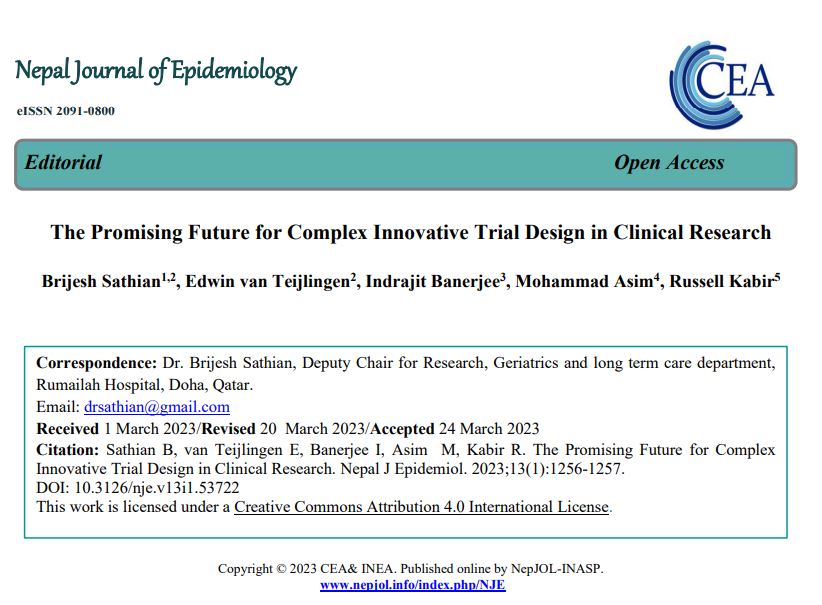
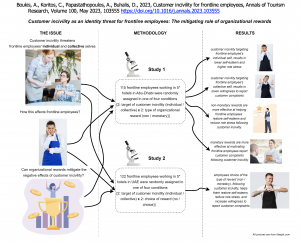




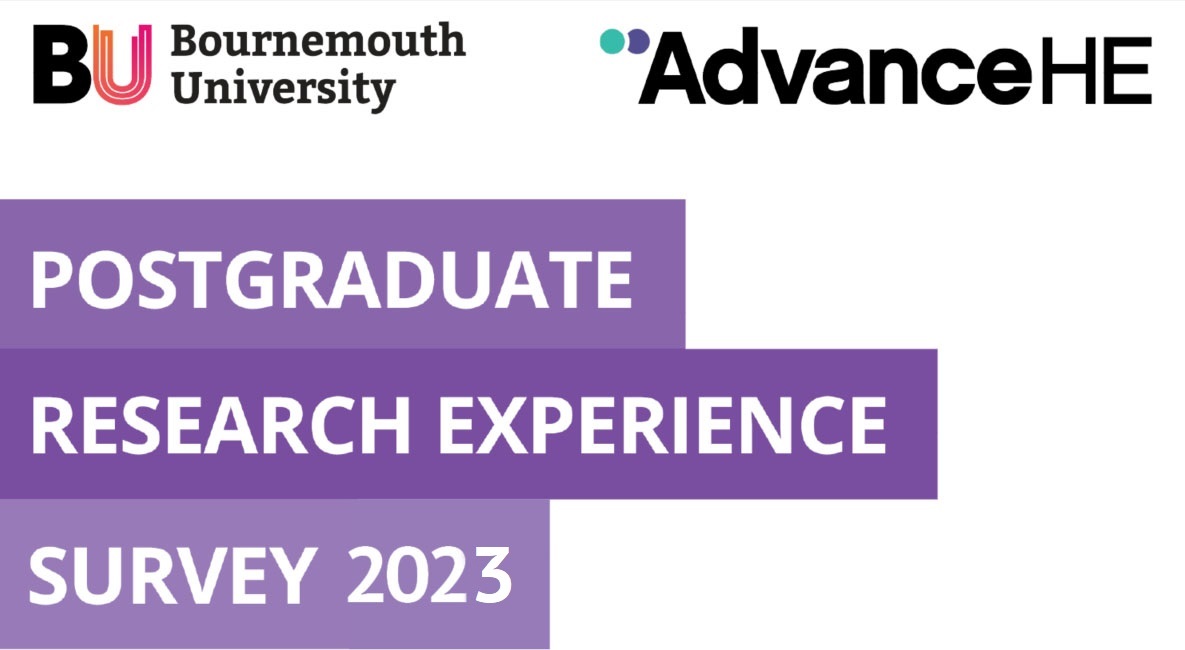

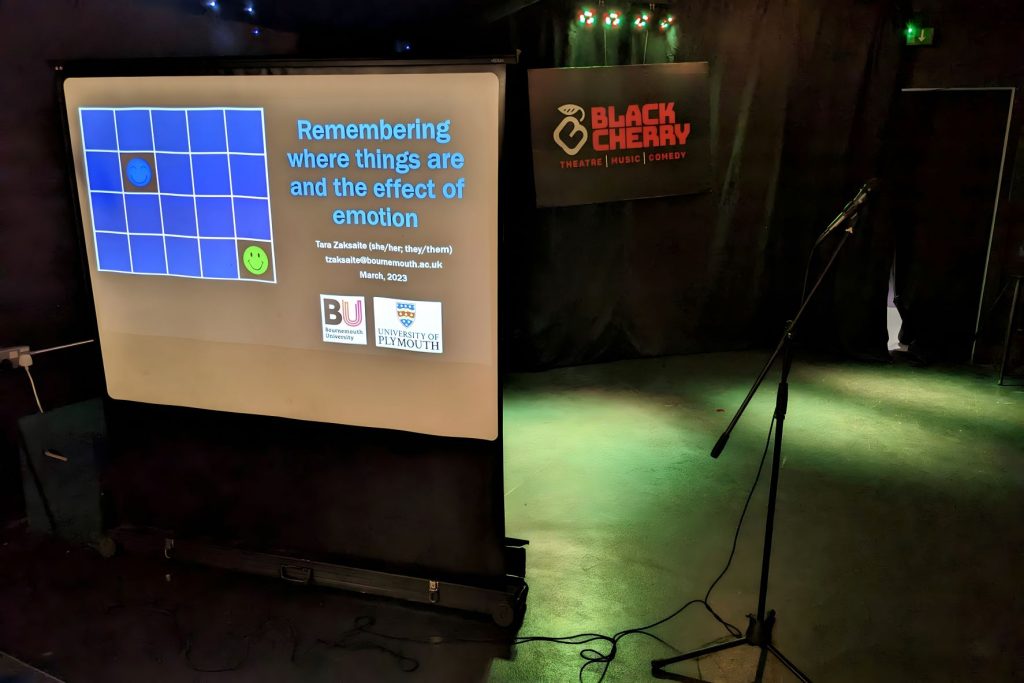
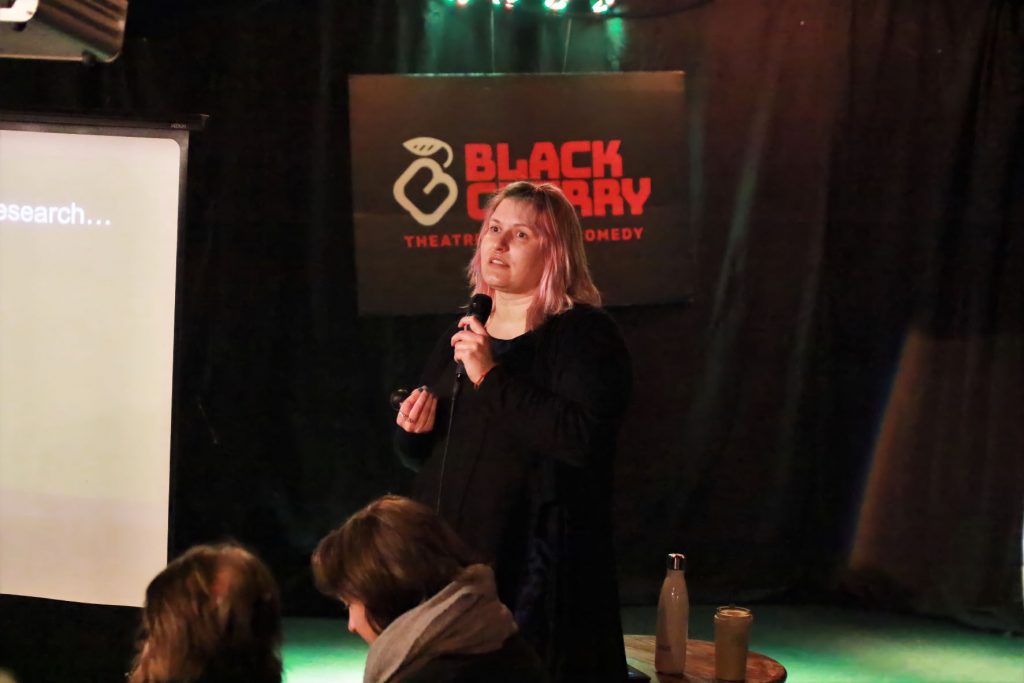
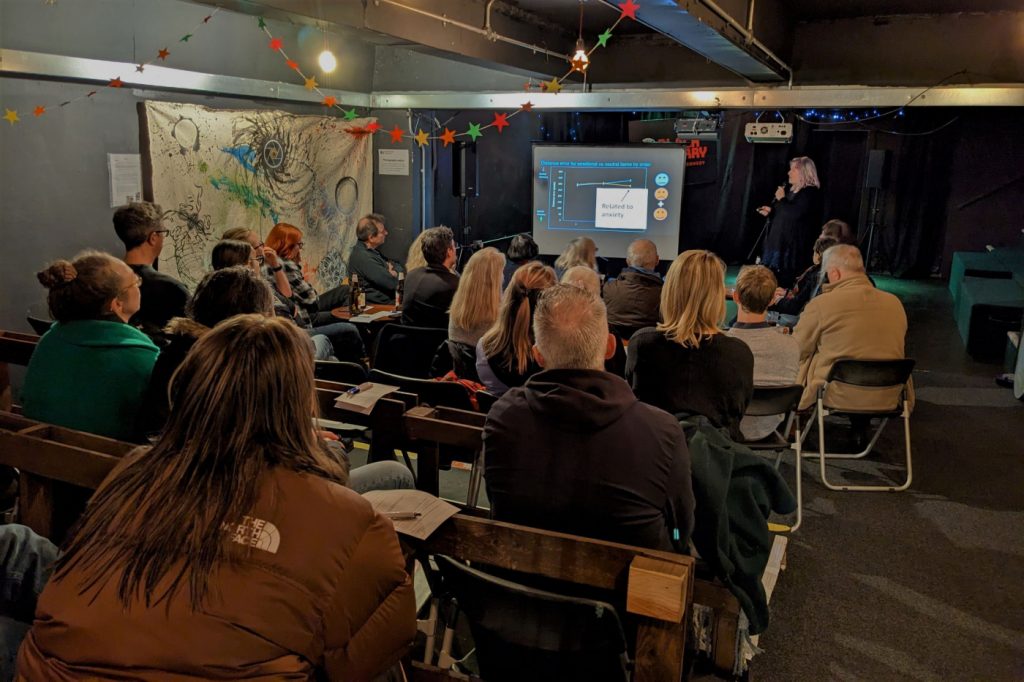











 REF Code of Practice consultation is open!
REF Code of Practice consultation is open! BU Leads AI-Driven Work Package in EU Horizon SUSHEAS Project
BU Leads AI-Driven Work Package in EU Horizon SUSHEAS Project Evidence Synthesis Centre open at Kathmandu University
Evidence Synthesis Centre open at Kathmandu University Expand Your Impact: Collaboration and Networking Workshops for Researchers
Expand Your Impact: Collaboration and Networking Workshops for Researchers ECR Funding Open Call: Research Culture & Community Grant – Apply now
ECR Funding Open Call: Research Culture & Community Grant – Apply now ECR Funding Open Call: Research Culture & Community Grant – Application Deadline Friday 12 December
ECR Funding Open Call: Research Culture & Community Grant – Application Deadline Friday 12 December MSCA Postdoctoral Fellowships 2025 Call
MSCA Postdoctoral Fellowships 2025 Call ERC Advanced Grant 2025 Webinar
ERC Advanced Grant 2025 Webinar Update on UKRO services
Update on UKRO services European research project exploring use of ‘virtual twins’ to better manage metabolic associated fatty liver disease
European research project exploring use of ‘virtual twins’ to better manage metabolic associated fatty liver disease